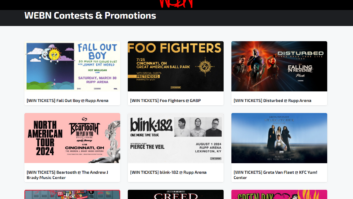As social animals, we all exist within groups and organizations, and most of us spend more time with our colleagues at work than we do with our families and friends. As a result, the work culture can have a profound influence on our sense of well-being; the corporate culture is one of the biggest influences on our day-to-day behavior.
Moreover, there is some truth to the notion that after a few decades, our personalities become infused with our professional culture, hence the jokes about engineers, doctors, lawyers, economists and politicians. We become how we live. And how we live is strongly influenced by the culture of our communities.
Every profession has its own unique culture. If you want to understand the culture of surgeons, read “The Scalpel’s Edge, The Culture of Surgeons” by Paul Katz; for high-voltage physicists, read “Beamtimes and Lifetimes: The World of High Energy Physicists” by Sharon Traweek; for electronic musicians, read “Rationalizing Culture: IRCAM, Boulez, and the Institutionalization of the Musical Avant-Garde” by Georgina Born; for scientists, read “Laboratory Life: The Social Construction of Scientific Facts” by Bruno Latour.
Even though anthropologists have not yet studied broadcasters and audio engineers, they too have a culture that is different from that of other professions.
TOO BIG TO IGNORE
In previous Last Word articles, I explored decision-making from the perspective of an individual without acknowledging the influence of the organization’s culture. It now time to look at the elephant in the room that nobody mentions.
But that brings us to the question of what is culture? One definition states that culture is the composite of social relationships and practices within which people and activities are embedded. Patterns of human interactions acquire symbolic meanings that give those interactions significance and importance. Such definitions are wonderfully abstract and fitting for academic researchers, but almost meaningless for the rest of us.
How can we recognize the properties of a corporate culture? Here are some examples.
At one time, GE managers were required to fire the weakest 10 percent of the staff and to promote the strongest 10 percent. This was a Darwinian culture where everyone was in competition with everyone else for survival. At the other extreme, 25-Seven, a start-up company where I work, has a culture based on mutual support and cooperation.
Many Japanese companies have a culture of consensus and harmony that trumps individuality. Google has a culture that provides all the amenities of life (high-quality food, exercise facilities, cleaning services and so on), which makes the work place your home, and colleagues your family. It is a culture that deliberately fuses work and play. Apple loves secrecy.
Some cultures are based on fear; some cultures value loyalty above performance; some cultures are based on who plays golf with the president; some companies value engineering above marketing; some cultures are based on dreams of infinite wealth. Some companies value tradition and consistency as being more important than innovative creativity. In some companies, politics is more important than reality.
Because of their public prominence, the cultures of major companies often are described in popular and business publications. Clear Channel, Apple, Google, Microsoft and GE have unique cultures. But even the smallest insignificant organization has a culture. Have you tried to describe the culture of your organization? It is worth doing.
CAN’T TOUCH THIS
Culture is not found within a single person or document, but rather it is the social air that we breathe. Everyone contributes to creating the corporate culture and everyone is influenced by it.
Regardless of his power, a CEO cannot easily change an entrenched culture. He cannot readily convert an organization into an aggressive company if employees had self-selected themselves over decades to be gentle and altruistic. Conversely, an organization that promises great wealth in exchange for 70-hour work weeks is unlikely to tolerate those who place family values above the needs of the company.
Logical and rational arguments are no match for the power of culture. Ignore culture at your own peril.
Having worked for over 45 years as a professional consultant in many companies, I quickly learned to recognize the unique culture of every client company. Chatting with those employees having low status usually reveals the organization’s culture because these people often are comfortable talking freely. Given the opportunity, I always try to become friends with janitors and administrators. They are the windows into corporate culture.
Culture strongly influences behavior because every decision is subject to some kind of reward and punishment, which can be as explicit as receiving a promotion, or as implicit as being ostracized from sources of information.
Gradually, those individuals who stay in a group do so by adapting to the culture, and they in turn enforce the culture on those who join the group. A personality that is mismatched to the culture is well-advised to join another organization that is a better match. This process continues indefinitely though each generation as each new employee joins the group. The original creators of the culture can be long retired, yet their values remain.
Culture is transmitted to each new generation through subtle process. When you interviewed for your current position, you no doubt considered its job description, responsibilities and compensation. And the manager that hired you considered your skills and professional experience. But both you and the interviewers unconsciously were considering if there was a cultural match in terms of values, personality, lifestyle and psychology.
This is the self-selection process of cultural transmission. Errors are corrected by resignations and dismissals.
Once you join an organization, your colleagues will provide you with the unwritten rules for success. If you can flexibly adapt to these rules, and if you choose to do so, you are joining the culture. Years later, when you interview a new prospective employee, you too will consider the cultural match as a criterion for making an offer.
LIFE CYCLES
While I appear to be arguing that culture is frozen, there is always a dynamic change taking place, even though it is not under the conscious control of individuals. Organizations, both big and small, have a life cycle in the same sense that all of us progress from infancy, to child, to teenager, to young adult, to maturity, to senior citizen and eventually to death.
In his book “Emergence: The Connected Lives of Ants, Brains, Cities, and Software,” Steven Johnson described the life cycle of an ant hill, which took 10 years from birth to death, even though the life span of each individual ant was only one year. Each generation of ants was born into a different stage of the ant hill. The ants of the first year behaved differently from the ants of the 10th year. Each generation of ants brought the hill to the next stage of its life cycle.
Startup companies are like infants; large companies that have been around for decades are like senior citizens. And just as a young adult has physical stamina, the elderly have trouble walking to the store. The culture of broadcasting companies in the 1930s is very different from their counterparts in the 21st century.
The proverbial generation gap between young and old, which was first reported in ancient Greece, is nothing more than a reflection of the fact that young people mature within a different culture than that of their parents.
I started my career in the 1960s, a decade whose culture was dominated by the Cold War and Russian advances in the space race. Moreover, that culture was controlled by personalities that were formed during the economic depression and World War II. I had great opportunities for professional advancement in that culture, which I falsely attributed to my brilliance. Years later, I realized that my success was the result of the culture of that particular decade.
External forces can also change cultures, such as the introduction of personal computers and the Internet. The current global financial mess is changing cultures in all organizations as you are reading this article. Everyone is reexamining the relationships among risk, reward and survival. Attitudes towards tradition and innovation are not consistent from decade to decade. While you can pick the organization (if you are lucky), none of us picks the decade in which we live.
We now understand why the radio industry is having such trouble adapting to the 21st century. It was born in a world with different values and rules. And those individuals who created radio in the 1930s would be out of place in our world today. Conversely, if any of us were thrown back a century, we, too, would experience culture shock. When culture makes rapid changes, individuals and organizations suddenly find themselves in a foreign country.
Take an objective look at the broadcast culture in which you live. How has it changed since you joined it?
Dr. Barry Blesser’s column is a recurring feature in Radio World Engineering Extra. He is director of engineering for 25-Seven Systems.












